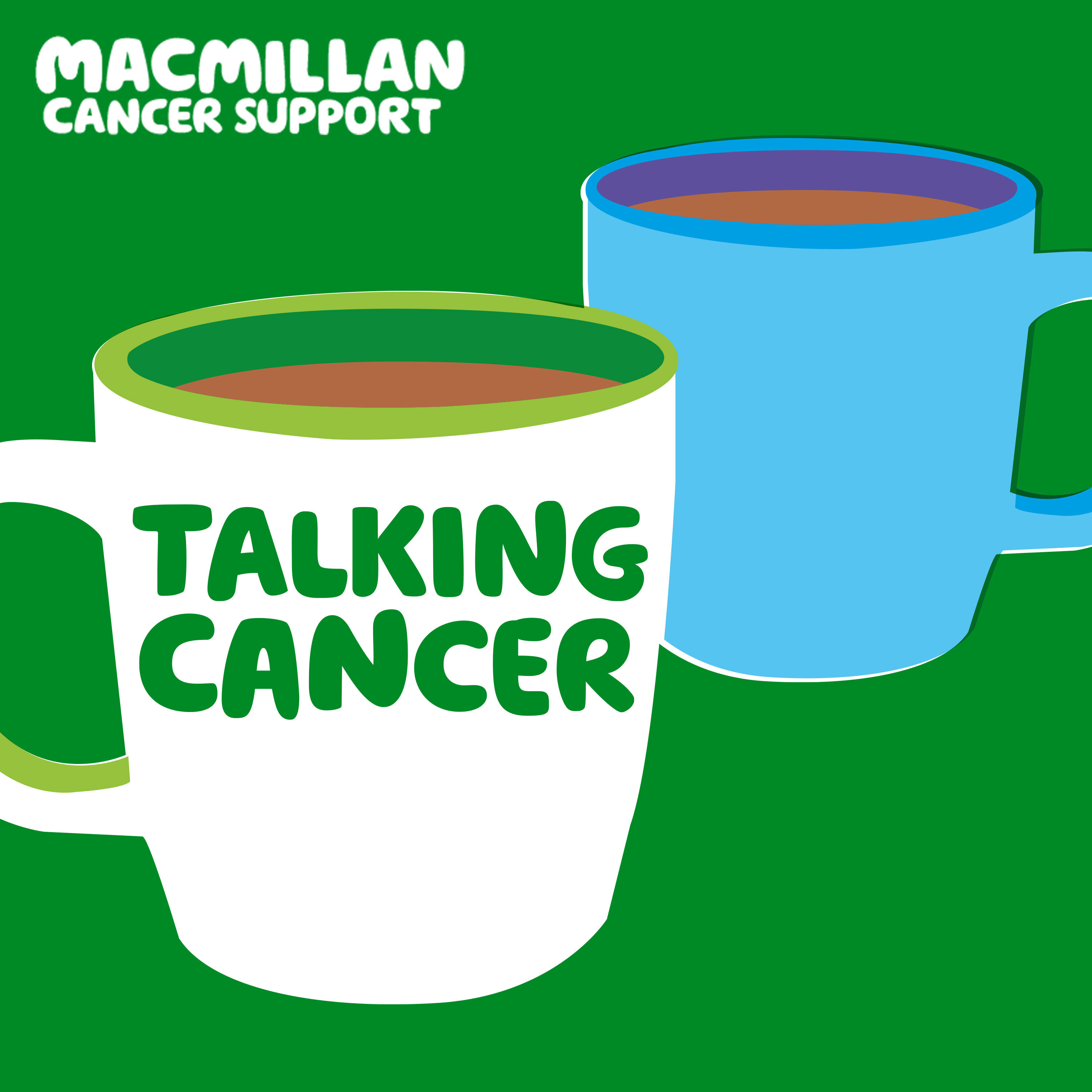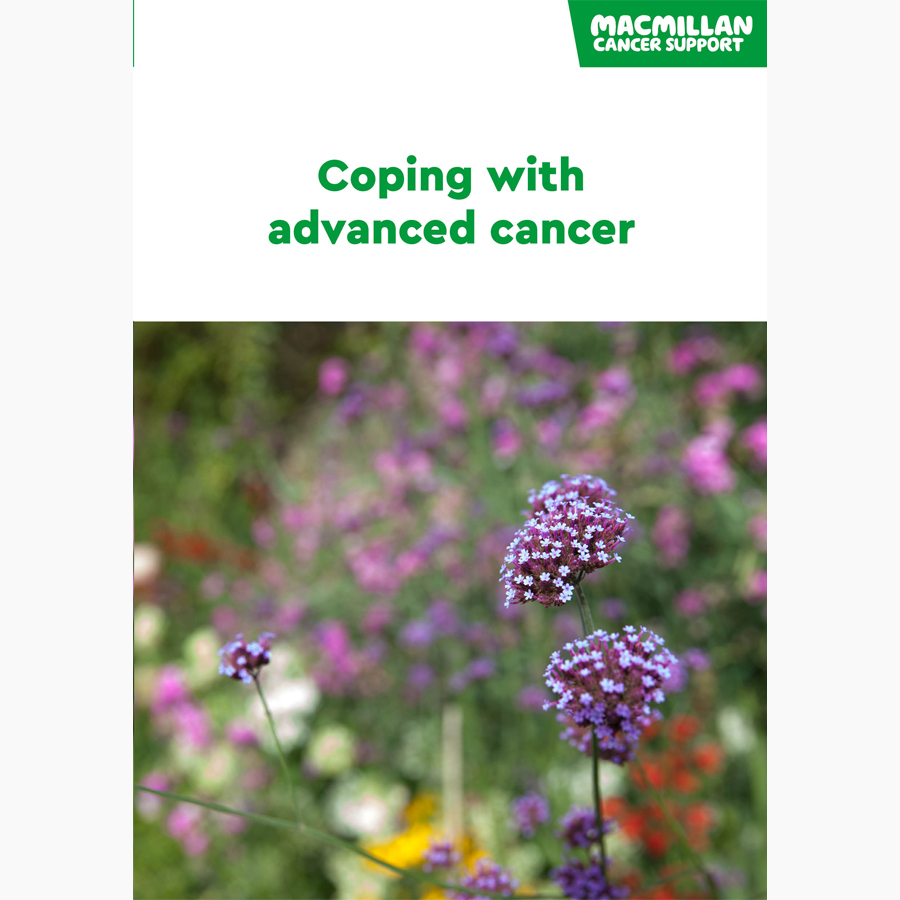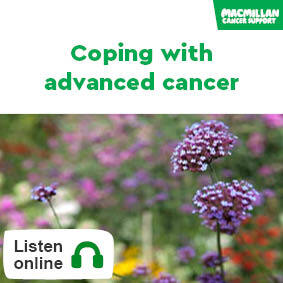Advanced cancer
Choose a type
What is advanced cancer?
What does advanced cancer mean?
Advanced cancer is cancer that has spread or come back. It is usually used to describe cancer that cannot be cured.
Doctors sometimes use other words to describe advanced cancer. For example, they may use metastatic or secondary cancer to describe cancer that has spread to other parts of the body. Depending on the cancer type, it may also be called stage 4 cancer.
Some people find out they have advanced cancer when they are first diagnosed. For others, the cancer may spread or come back after treatment.
Related video
Can advanced cancer be treated?
You may have treatment to control the cancer. Sometimes, treatment can control advanced cancer for a long time. This can sometimes be years. During this time, you may be able to continue with your life and do the things that are important to you.
Sometimes it is not possible to stop the spread of the cancer. You will still have treatment to manage symptoms and help you feel as well as possible. This is called supportive or palliative care. This may include:
- medicines to help manage symptoms such as pain or sickness (nausea)
- radiotherapy to help reduce pain or bleeding caused by cancer
- emotional support to help you cope with any difficult feelings you have.
Signs and symptoms of advanced cancer
Many people worry that a cancer will come back after treatment. Even when your doctor reassures you, it is still normal to worry. The possible signs of advanced cancer can depend on the type of cancer. Your cancer doctor or specialist can explain what to look out for.
We have general information on signs and symptoms to be aware of. Always check any new symptoms with your GP, cancer doctor or specialist nurse. This can help with feelings of worry and uncertainty.
Advanced cancer treatment
Treatment may help to control the cancer or manage its symptoms. Your cancer doctor or specialist nurse will explain what treatments may be helpful. This can depend on:
- the type of cancer
- the areas of the body affected
- any symptoms you have.
Treatment for advanced cancer may include:
- surgery
- radiotherapy
- chemotherapy
- hormonal therapies
- targeted therapies
- immunotherapies
- a combination of treatments
You may be offered some treatments as part of a clinical trial.
Making decisions about treatment
You may want to find out all your options before making treatment decisions. Your doctor can usually give you information on how well a treatment may work. They will consider what is important to you and how treatment may affect you. This will help you both decide the best treatment for you.
You may need to have treatment for a while to see if it is helping you. Sometimes, the treatment only causes side effects and has no benefits. In this case, you may want to think about if you want to continue with treatment. Making treatment decisions like this is always difficult. Before you decide what to do, it may help to talk to your cancer doctor, specialist nurse and family and friends.
If you decide not to have further treatment, your cancer doctor and specialist nurse will support you and make sure your symptoms are managed.
Asking about how long you might live
You may want to have an idea of how long you might live. This is called a prognosis or life expectancy. Or you may not want or need to know.
If you want to talk about this, your cancer doctor or specialist nurse can help. We have information about talking to your healthcare team about prognosis that may be helpful.
Related video
Coping with advanced cancer
Coping with how you feel
It is common to have many different reactions and feelings when you find out that cancer has come back or spread. You may feel shocked and find it hard to understand. You may feel angry or frightened about the future.
These feelings can be difficult. They usually become easier to manage over time and as you start making decisions and plans. We have information about coping with difficult feelings.
Macmillan is also here to support you, and your family and friends. If you would like to talk, you can do the following:
- Call the Macmillan Support Line on 0808 808 00 00.
- Chat to our specialists online.
- Visit our Online Community to talk with people who have been affected by cancer, share your experience, and ask an expert your questions. There is also a group for people living with incurable cancer, where you can openly discuss your feelings.
Coping day-to-day
There are a lot of unknowns when you are living with advanced cancer. You may worry about:
- your treatment
- how symptoms may affect you
- losing your independence or mobility
- the effect of the cancer on your family and friends
- work or money
- how you will cope as the cancer develops.
These feelings can make it difficult to live life the way you would like to. And it is difficult to make plans when you do not know what is going to happen.
We have information and tips to help you cope:
Related pages
Related video
Advance care planning
Knowing that your illness may not be curable might help you think about:
- what is important to you
- how you want to live your life.
You may want to focus on things you enjoy or want to achieve.
It might also make you think about planning ahead. If you feel ready to do this, you may want to write down your wishes. This might include:
- what is important to you
- how and where you would prefer to be cared for.
This is called advance care planning.
Finding out about end of life
When someone finds out their cancer may not be cured, they may have questions about what will happen at the end of life. They may want to understand what to expect or want to know how to prepare. We have more information about practical and emotional support at the end of life.
About our information
-
References
Below is a sample of the sources used in our advanced cancer information. If you would like more information about the sources we use, please contact us at cancerinformationteam@macmillan.org.uk
Health Improvement Scotland/ NHS Scotland. Scottish Palliative Care Guidelines. Available from www.palliativecareguidelines.scot.nhs.uk/ [accessed Nov 2021].
NICE. End of life care for adults: service delivery. NICE guideline NG142 [Internet]. 2019. Available from www.nice.org.uk/guidance/ng142 [accessed Nov 2021].
NICE. Improving supportive and palliative care for adults with cancer. Cancer service guideline CSG4 [Internet]. 2004. Available from www.nice.org.uk/guidance/csg4 [accessed Nov 2021].
-
Reviewers
This information has been written, revised and edited by Macmillan Cancer Support’s Cancer Information Development team. It has been reviewed by expert medical and health professionals and people living with cancer. It has been approved by Senior Medical Editor, Dr Viv Lucas, Consultant in Palliative Medicine.
Our cancer information has been awarded the PIF TICK. Created by the Patient Information Forum, this quality mark shows we meet PIF’s 10 criteria for trustworthy health information.
The language we use
We want everyone affected by cancer to feel our information is written for them.
We want our information to be as clear as possible. To do this, we try to:
- use plain English
- explain medical words
- use short sentences
- use illustrations to explain text
- structure the information clearly
- make sure important points are clear.
We use gender-inclusive language and talk to our readers as ‘you’ so that everyone feels included. Where clinically necessary we use the terms ‘men’ and ‘women’ or ‘male’ and ‘female’. For example, we do so when talking about parts of the body or mentioning statistics or research about who is affected.
You can read more about how we produce our information here.
Date reviewed

Our cancer information meets the PIF TICK quality mark.
This means it is easy to use, up-to-date and based on the latest evidence. Learn more about how we produce our information.







